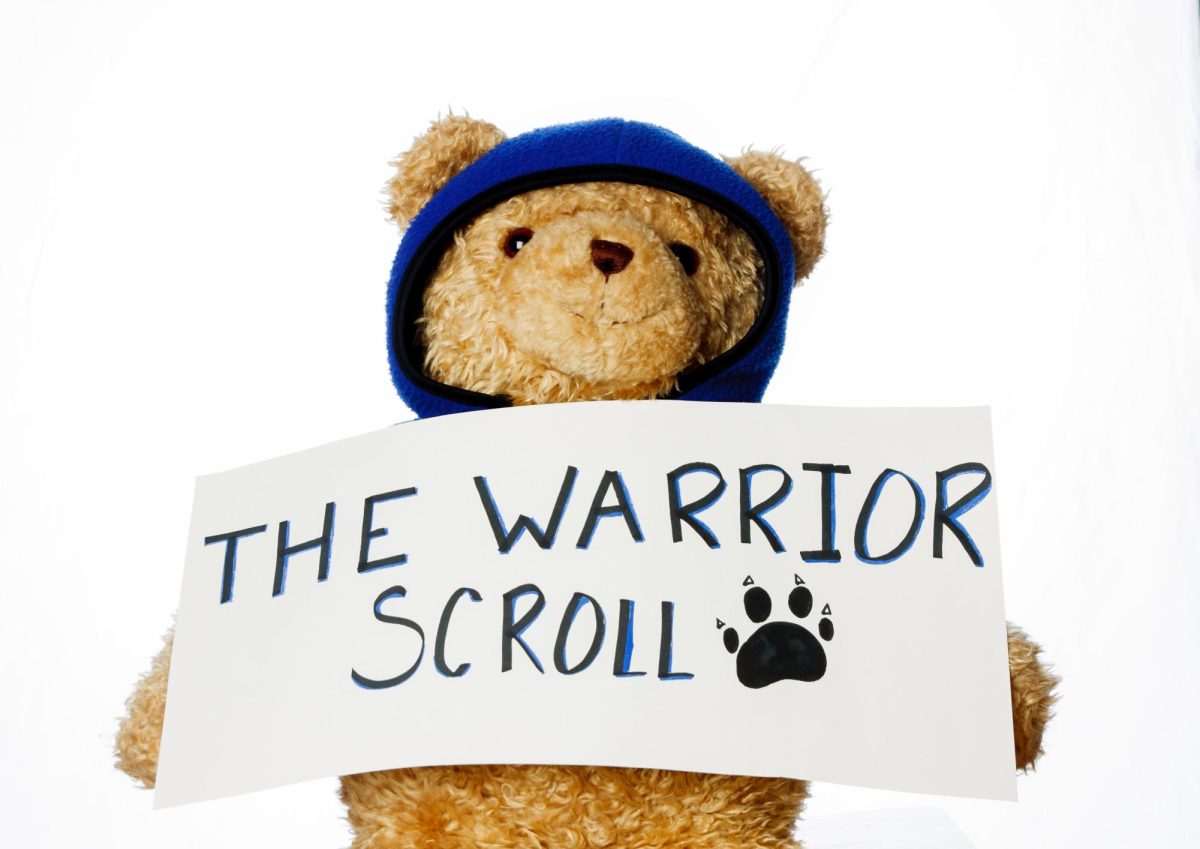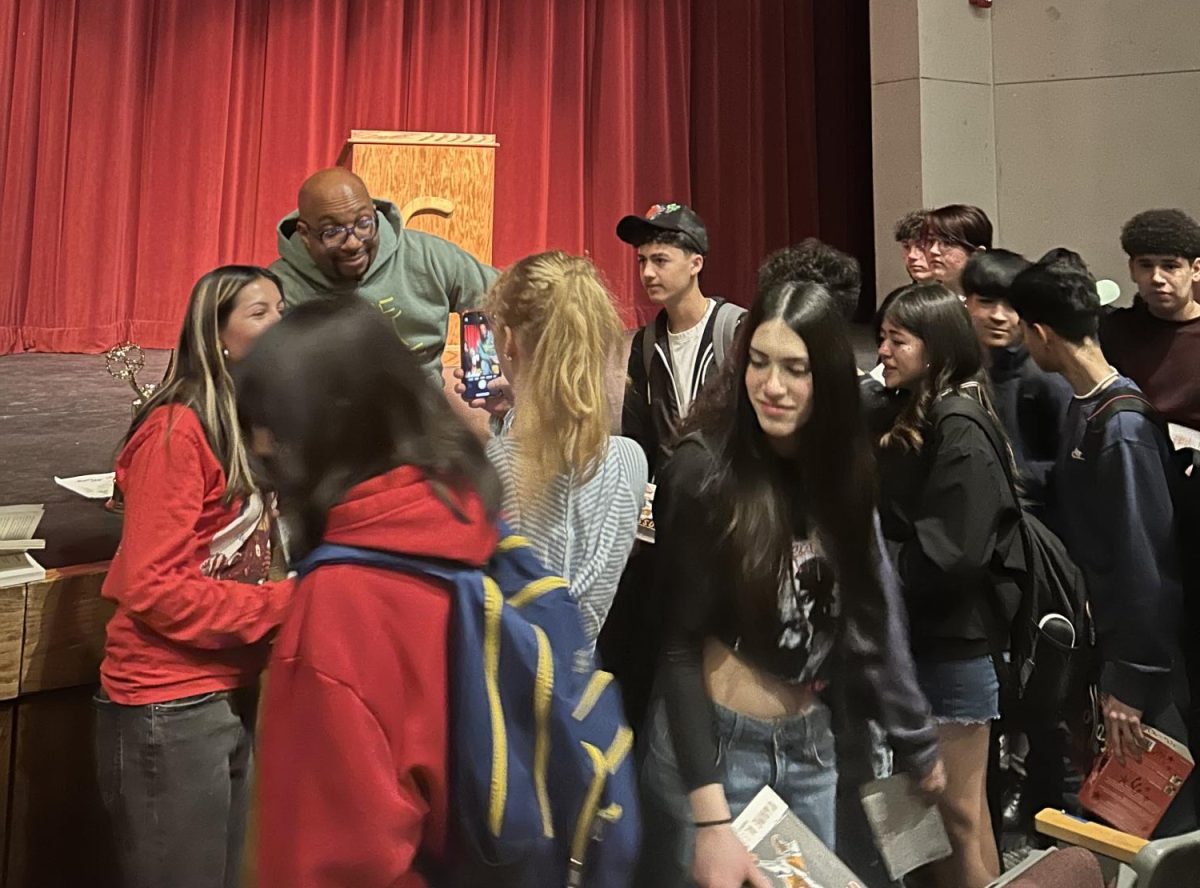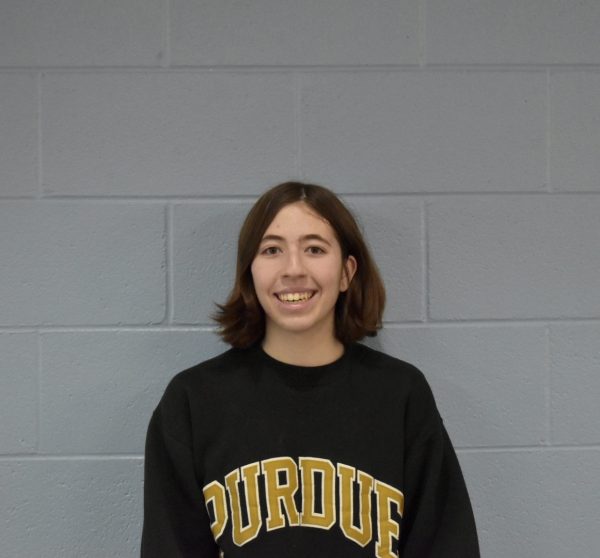Many Centaurus students hope to attend the CU School of Engineering, but some are unsure of what the experience is like. I interviewed four CU engineering students to get their perspectives, opinions, and experiences.
I interviewed Polly Fitton (she/her), a fourth-year, out of state aerospace engineering student, to find out her experiences as an engineering student at CU. She chose CU Boulder for “its excellent aerospace reputation and for its location!” She said, “I love mountain activities and the fun weather here. The aerospace program here is superior to a lot of others due to its immediate emphasis on the degree instead of spending a lot of time on general education classes. Its senior design course also gives real experience to students before they graduate, making them more desirable for industry work or graduate school programs.”
I asked Polly what she liked about the CU engineering program and she explained, “a lot of the professors here are really passionate about their subject. My freshman year was almost one hundred percent virtual/online courses, but my teachers still managed to get us lab experience. When classes started transitioning back to in-person curriculums, all of this just improved even more. Through my connections, I got a job in planetary science undergraduate research at LASP and have landed an internship for the summer in industry work. CU has so many resources to help students who are struggling or just want some extra guided study. CU gives every opportunity for a student to succeed so that all you need to bring with you is your willpower.”
I asked her what some negative experiences she’d had were and she told me, “some professors are focused mostly on their own research and don’t put in as much effort as others do into their classes and lessons. This causes a great disconnect in learning, and students can usually tell that their professor doesn’t care as much about what they’re teaching. It’s not always the teachers that bring negativity—I’ve found myself often struggling to be around my classmates when times get rough and the workload starts to grow. It’s a difficult degree, but we each picked this path for ourselves. Despite this, it can be difficult to avoid listening to complaints or seeing people cheat around the building”.
If Polly could give advice to an incoming engineering student, she would advise them to, “make sure you’re doing what you’re passionate in and studying for yourself. Care about your own success and understanding, not just your grades. Confidence helps in test-taking, so even if you don’t absorb each and every subject, you’ll do better on your exams if you’re trying your best. Don’t let anything stand in the way of your success;if you’re facing unique challenges (for example, I have two chronic diseases that affect almost every aspect of my life), learn to overcome them and move forward”.
Polly also told me, “living away from home and meeting people from so many different backgrounds all pursuing engineering has changed the way I look at life.” She told me, “at CU, the academic resources are abundant and the opportunities for success are vast, but the way the program brings people together is incredibly beneficial for all of us. Engineering as a career involves a lot of teamwork, and CU has simulated that in just about every single class. Through the people you work with you can find plenty of ways to better yourself and learn from others as well as teach what you know, and through meeting professors and TA’s you can make important connections that can help when it comes time to apply for jobs or graduate school.”
I also interviewed Kiley Beckwith (she/her), a first-year Master’s student, about her experiences with the CU School of Engineering. She chose CU, “because it has a strong aerospace engineering department and has proven to create a lot of opportunities for the students enrolled.” She said, “when I toured CU as a high schooler, I thought the campus was beautiful and the facilities in the aerospace building were impressive. I decided to stay for my Master’s in aerospace because CU is one of the only schools that offers a formal Bioastronautics graduate program. That program focuses specifically on human spaceflight which is quite unique.” Kiley explained, “it was daunting at first, but after a couple years we all realized we were in the same boat and it was best to work together and help one another, which is fundamental to engineering … As a Master’s student I’ve found I get more personal connections with my professors because the class sizes are smaller and they focus more on class-based discussions. In addition, CU’s Master’s program is unique because it offers the option to take two semesters to work on a graduate project rather than do research and write a thesis. This track is geared more towards students who plan to go work in industry because it prepares us for the life cycle of a project and introduces us to technical writing and presentations.” Most of the negatives that Kiley experienced, “were mainly from the amount of workload
involved in getting an aerospace degree.” She also said, “in addition, the class sizes were rather large for most of my four years in undergrad. The university emphasizes on prospective student tours that class sizes get smaller each year, but that was not the case for us. Every aerospace class had at least 100 students in it. It makes personal relationships with the professor more difficult, and class discussion a minimum.” She added, “as a graduate student I do not have very many complaints about the aerospace program at CU.” The advice that Kiley would give to an incoming engineering student would be, “to not be afraid to ask for help; whether that
is from your classmates, an advisor, or a professor. Most of the time you are not the only one
who has questions because engineering isn’t easy. It is also important to believe in yourself. By believing in your own abilities and finding yourself a community of students you learn quickly that you’re not alone, and you can help each other out. Additionally, while you do have to be disciplined and focused it is important to maintain a work-life balance. That can be difficult at times, but you don’t want your college years to pass you by and have your only experiences be about school.” Kiley finished by telling me what it is like to be a CU engineering student in a general sense. “All engineering programs will be rigorous, but at CU you get to enjoy the benefits of Colorado and the supportive environment of other students while enduring your engineering degree.”
I interviewed Jennie Fleurant (she/her), a first-year Masters student. She chose CU because it, “has a stellar reputation as one of the best engineering schools in the country. The faculty members here are renowned for their expertise. And lastly, the surroundings of Boulder offer not only a beautiful campus, but also a stunning view of the mountains.” While at CU, Jennie has experienced, “a supportive learning environment, opportunities to collaborate with accomplished faculty and peers, and classmates who have become friends.” She explained to me that, “as a first-year Master student in environmental engineering, time management pressures and occasionally demanding schedules have been some negative things I have experienced.” Jennie would recommend incoming engineering students to, “build a support system. The professors and peers are here to help, and care about your success. Ask for help when you need to and have at least one study partner. I would also recommend self-care practices. Make sure to balance school with good rest and breaks.” Lastly, Jennie told me that, “being a CU engineering student is demanding, but yet it is fascinating. I enjoy learning about things that I am passionate about, and at CU I am doing just that.”
Lastly, I interviewed William McClung (he/him), a senior at CU. He chose CU, “because CU’s aerospace engineering program was well-ranked and I wanted to be able to ski.” William explained, “I’ve had positive experiences with making friends at CU and the abundance of outdoor activities gives me something to look forward to when I’m not studying. engineering classes are generally very challenging but doable and the professors are extremely well-qualified.” A negative that he has had with the CU School of engineering is that, “the aerospace engineering department at CU is very large, which unfortunately makes lectures impersonal and it’s very difficult to develop relationships with professors. Graduation rates in aerospace are very low, and I sometimes feel there is too much emphasis on weeding out weaker students than building up the class as a whole.” William would advise incoming students, “to make friends in their classes to cooperate with on homework and studying, and to pay attention to what classes they are signing up for.” He explained that, “life as a CU engineering student can be challenging but is generally enjoyable as long as you take care of yourself and try to have a healthy balance between school and life. Engineering school in general is almost never likely to be enjoyable, but in my opinion, there are no better surroundings to help students take their minds off their classes.”
It seems like many students have a positive experience with the CU School of Engineering. However, interviews from 4 students are not representative of the entire student body, and their advice should be taken with a grain of salt.











